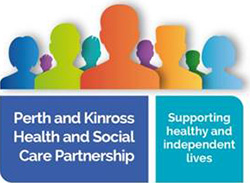Harmful Practices
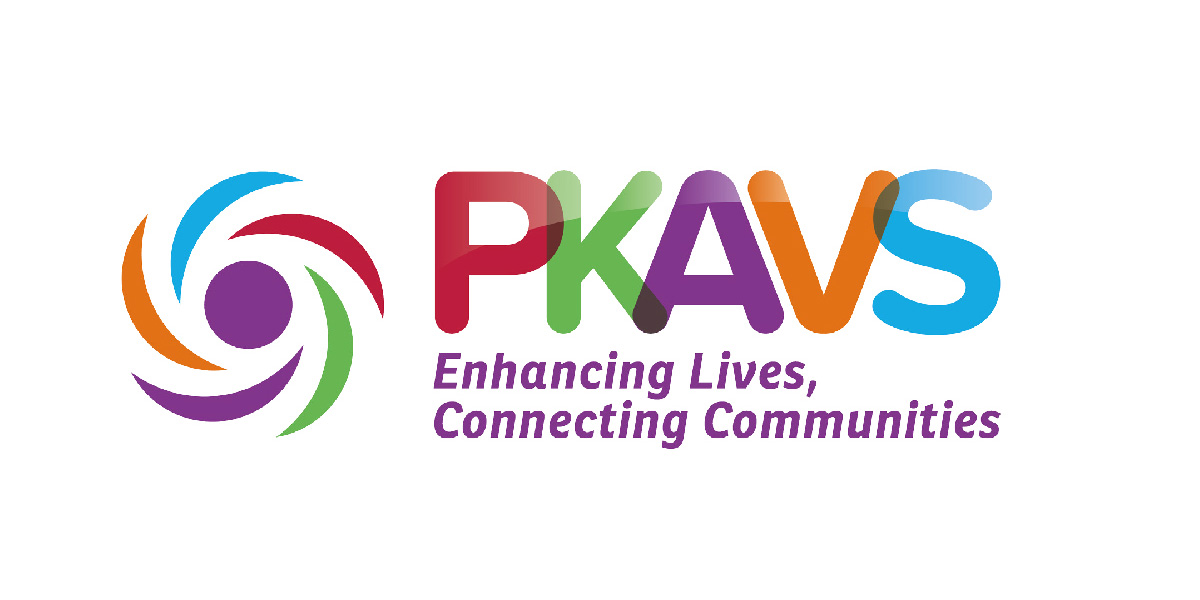
PKAVS Minority Communities Hub and Third Sector Interface are delighted to have been working in partnership with Perth and Kinross Council Learning and Development Team to deliver learning opportunities around what is commonly termed as ‘harmful practices’.
Harmful practices is the umbrella term often used by practitioners operating in the sphere of gender based violence to cover incidents of violence which have been committed (most often against women and girls), in communities over several generations and have become normalised as part of accepted ‘culture’. Examples of such practices include honour crimes, female genital mutilation (FGM) and forced marriage.
It should be highlighted that harmful practices are not specific to any one group. They transcend geographical boundaries, cultures, religious groups and genders. Often, although not always, curbing sexuality, protecting perceived family ‘honour’ and preventing relationships with those deemed outside of one’s own community are justifications for such acts of control and/or abuse.
PKAVS were lucky enough to have a Dundee University Community Learning and Development student placement spend several weeks with us recently. Sam, a 2nd year student, researched harmful practices and collated a list of resources and learning opportunities which may be of interest both to workforces and communities across Perth and Kinross in a bid to broaden knowledge, empower and upskill individuals in identifying potential incidents where ‘harmful practices’ may have occurred, and also, where to contact for expertise and insight when supporting someone through a traumatic experience. If you require further information, wish to discuss things in more detail or have any questions please contact Melanie Hogg, on melanie.hogg@pkavs.org.uk
|
Here you will find a range of learning resources, including video, audio, images and written content to support your personal and professional development. You can use them to support your personal learning as well as within team or group learning spaces. To help you navigate your way through this learning, please use the following questions for your reflection, consideration and discussion. You can document this as part of your record of learning and use within your supervision and development discussions.
- What does this make you think about? - How do you feel after watching/listening/reading this? - Why do you think this has provoked these thoughts and feelings? - What has this reaffirmed for you about how you work? - What does this mean in relation to how you work right now? - Is there anything you want to change about how you work now? - If you want to change something, what do you need to do now? |
We are delighted to share...
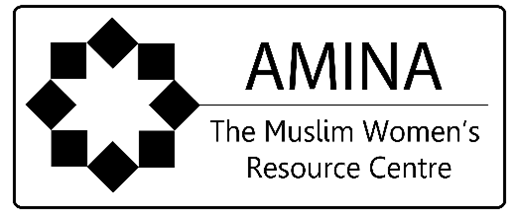
Amina is an award-winning organisation, recognised by Muslim communities and key partners within Scotland for its pioneering and responsive approach to addressing key issues and needs of Muslim women.
Having invested in this specialist area where there was previously a gap in services in Scotland, Amina is recognised as the national hub for gaining access to, and consulting with Muslim women across Scotland. The organisation has been instrumental in initiating and tailoring services to meet the particular needs of Muslim women to ensure that they are able to fully participate in society without fear of discrimination or inequality. Some current projects include: a national helpline for Muslim and BME women in Scotland, campaign and prevention work to end violence against women and girls, poverty relief, English classes, digital inclusion, befriending and friendship groups, life in the pandemic exhibition and workshops on islamophobia to schools.
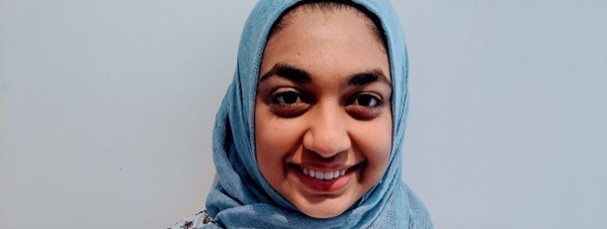
Safa Yousaf will be delivering the training. Safa has been with Amina for over 7 years working on a range of projects from delivering workshops on Islamophobia in Schools to working on the ending Violence Against Women project. Safa is currently the project manager for the Helpline project and the ending Violence Against Women programme. Safa has delivered workshops and training across Scotland to schools, conferences, community groups and service providers.
Please continue to keep an eye here for learning opportunities offered in collaboration with Amina and PKAVS
Open University free on line resources
Open University - On line resources - Race and Ethnicity Hub
Honour Based Violence
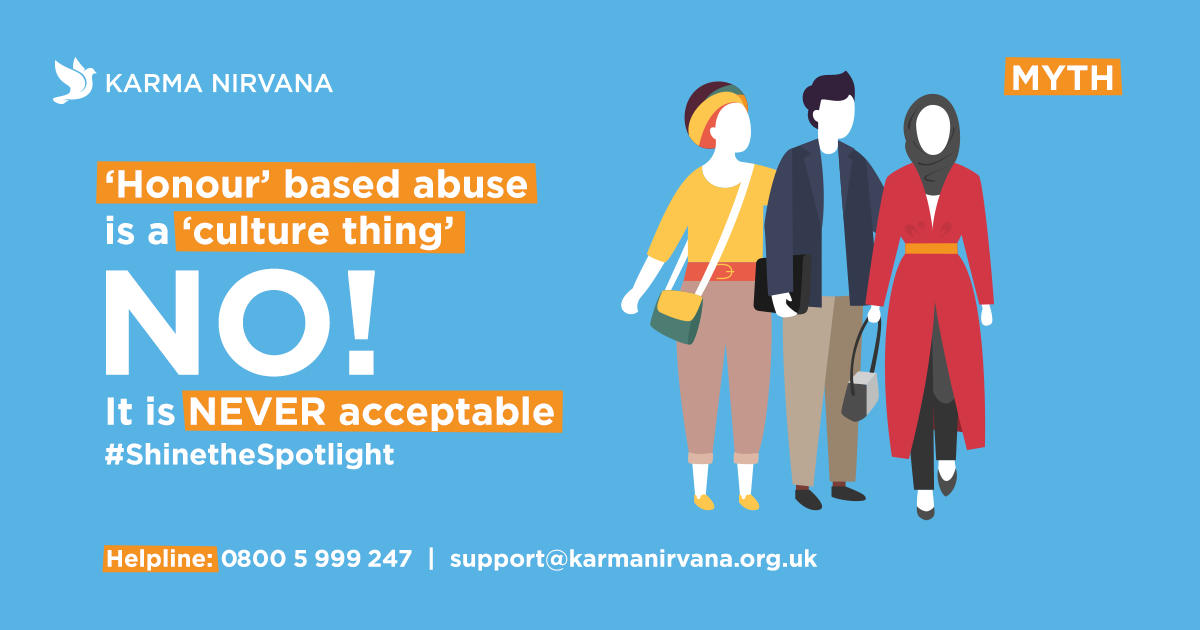
(Image from Karma Nirvana -karmanirvana.org.uk)
What is it?
Honour crimes are when a person is accused of ‘bringing shame’ or ‘dishonour’ to their family and are murdered or abused for this, usually by a family member.
Who is most at risk?
Females
While honour based violence is most prevalent in South Asian, Middle Eastern and African communities, it occurs across many other cultures and communities.
What are the signs to look out for?
Absences from work/school/education
Drop in performance
Disassociating from friends, daily life etc.
Depression
Visible marks or covering up to hide marks
Useful Websites
SafeLives
SafeLives did a ‘spotlight’ series on hidden victims of abuse, one of these focused-on honour-based violence and forced marriage. They provide research, statistics, blogs, podcasts and videos about the issues faced, and guidance on how to support..
Savera UK
Savera are a charity that advocate for victims of culturally specific abuse in the UK, they provide support and advice and help their clients get out of abusive environments. Savera not only support victims, but also contribute to research, provide training and raise awareness for the issue.
Case Studies
Honour-based abuse: Amala’s story. In this blog a woman (whose name has been changed for anonymity) tells her story and struggles of her abusive arranged marriage and abuse from her in -laws. SafeLives - Amala's story
How to refer (Scotland)
Victim Support Scotland
Victim Support Scotland offers support and advice to victims and witnesses of any crimes in Scotland.
0800 160 1985 (Mon-Fri 8am-8pm)
Scottish Women’s Rights Centre
The Scottish Women’s Rights Centre are a collaborative project that provide support, free legal advice and representation to women who are victims of violence and abuse.
08088 010 789
Shakti Women’s Aid
Shakti Women’s Aid support BME (black and minority ethnic) women, children and young people who have experienced or are currently experiencing domestic abuse. They listen, are non-judgmental, are confidential and provide advice and support.
0131 475 2399
How to refer (UK)
Honour Network Survivors Helpline
Ran by Karma Nirvana, staffed mainly by survivors of forced marriages and HBV, offering advice support and guidance to victims.
0800 5999 247
IKWRO (Iranian and Kurdish Women’s Rights Organisation)
IKWRO protects Middle Eastern and Afghan women and girls who are at risk of ‘honour’ based violence, forced marriage, child marriage, female genital mutilation and domestic violence and to promote their rights.
0207 920 6460
Sharan
The Sharan Project are a charity that provide support and advice to vulnerable women who are at risk of or are victims of honour-based violence.
Email: info@sharan.org.uk
Phone: 0844 504 3231 (for urgent enquiries)
The Halo Project
Halo offer a safe space for victims to talk to non-judgemental advisers who can offer advice and support.
08088 010 789

Newspaper Articles
The harrowing honour killing of Banaz Mahmod and how her body was found in West Midlands. Banaz Mahmod was only 20 years old when her family arranged for her to be raped and murdered. At her parents’ house in London, Banaz was raped tortured and eventually murdered because she had ‘dishonoured her family’. Banaz was killed by her own family because she chose to divorce the man her family had arranged for her to marry as she had met someone else and fallen in love. She was discovered stuffed into a suitcase in Birmingham.
Academic Articles
Crimes of Honour and Violence against Women in the UK
This article focuses on honour-based violence against women in the UK, it is written in response to how the criminal justice system handles these types of crimes. The article uses case descriptions to highlight the issue of the concept of honour being used to mediate violence against women. The article states that the way the UK justice system handles these types of crimes demonstrates a lack of understanding on the matter.
Crimes of Honour and Violence against women in the UK
Online Training Opportunities
The Halo Project
They offer training to all those who may encounter victims of HBV, forced marriage and FGM, training is offered to schools and other safeguarding agencies, including social services and the police. The training they provide includes e-learning, face to face and consultancy. Halo can be contacted at info@teesvalleyinclusionproject.com or on 01642 683045.
Shakti Women’s Aid offer practice-based training on honour-based abuse. They offer multi-agency training for practitioners, students etc. They offer customised training tailored to fit an organisation’s needs.
Shakti Women’s Aid also sometimes host events and training days, these can be found on their website.
Shakti Women's Aid - Events and Training
Presentation Links
Honour Based Violence and Abuse
Love not control - Project choice
Videos and Podcasts
Interview with Jasvinder Sanghera CEO and founder of Karma Nirvana. This podcast is an interview with the CEO and founder of Karma Nirvana, an award winning charity who support men and women who are victims of HBV and/or forced arranged marriage. They also support professionals who are working with the victims. In this interview Sanghera talks about starting Karma Nirvana, who they are, what they do and how far they have come. Podcast interview with Jasvinder Sanghera
Honour based abuse and forced marriage. Shigufta Khan, CEO of Darwen District Without Abuse, a specialist in honour-based violence and arranged marriage issues, hosted a webinar to increase awareness and give information about HBV and forced marriage.
Shigufta Khan - Webinar (30 mins)
Additional Reading
Dr Roxanne Khan: Three myths about 'honour'-based violence” Dr Roxanne Khan a senior lecturer in forensic psychology and a director of HARM (Honour Abuse Research Matrix) writes in this blog a bit of background into different forms of HBV and suggests three myths about HBV giving the readers a better insight. Dr Roxanne Khan - 3 myths about Honour Based Violence
Breaking the Silence within Communities and Service-Providers” Afrah Qassim, the Founder and Director at Savera UK, a charity that works to safeguard those at risk of HBV, FGM and forced marriage, writes about issues those at risk of HBV FGM and arranged marriage may face when looking for help and how raising awareness on these issues is necessary in communities and with service providers. Afrah Qassim - Breaking the silence within communities
Why women still get killed for love” In this article Academy Award and an Emmy Award-winning documentary filmmaker Sharmeen Obaid Chinoy talks about honour killings in Pakistan and how there is no justice for the victims. She talks about her most recent film “A Girl in the River: The Price of Forgiveness” which focuses on the issue of honour killings in an attempt to show the world the issues that females in Pakistan and other minority communities may face. TED.COM - Sharmeen Obaid Chinoy
Forced Marriage
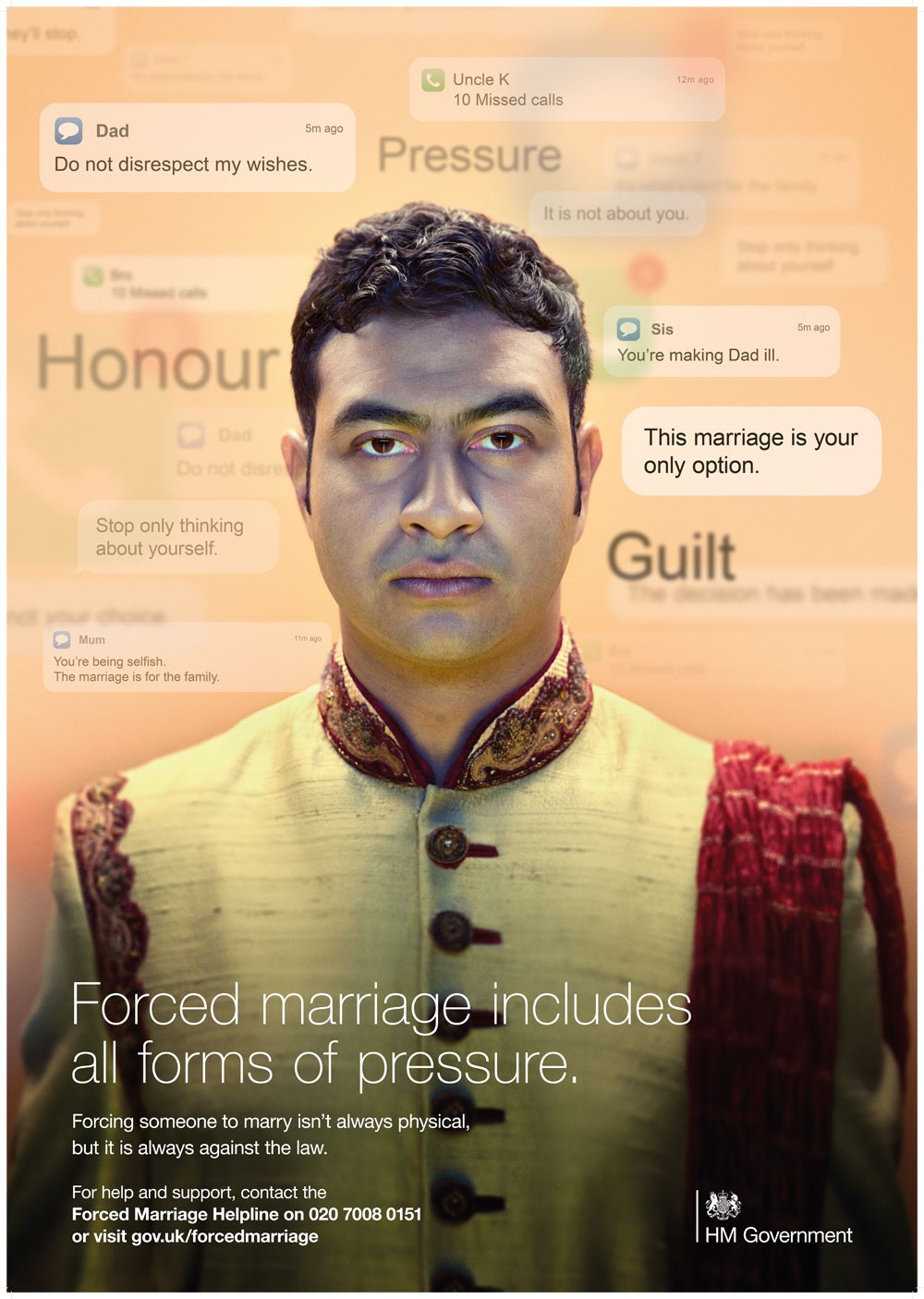
( Image from forcedmarriage.campaign.gov.uk)
What is it?
Forced marriages occur when either one or both parties do not or cannot consent to the union of marriage but are forced to do so anyway, usually by their families through either physical, psychological or emotional measures. Forced marriage is illegal in the UK and is recognised as a form of domestic or child abuse and a violation of human rights.
Who is most at risk?
Forced marriage can happen to anyone, no matter their religion, ethnicity, sexuality or gender.
According to the forced marriage unit the four countries with the largest number of cases of forced marriage Pakistan, Bangladesh, India and Afghanistan.
What are the signs to look out for?
Siblings being forced to marry or marrying young
Becoming withdrawn
The person believed to be at risk goes on holiday without warning
Signs of violence
Forced Marriage - neighbourhood watch
Useful websites
Childline offers information, advice and support.
The Rights of Women website offer information advice and support.
Forced Marriage - Rights of Women
Karma Nirvana are an award-winning charity founded by survivor and activist Jasvinder Sanghera CBE who support victims of honour based violence and forced marriage. They offer advice and support to victims, training for professionals etc.
The UK Government website have a guidance page on forced marriage, this includes guidelines for professionals on how to protect, advise and support victims of forced marriage. On this page readers can find how to recognise forced marriage, who the forced marriage unit are and how they can help, access to guidance and training as well as videos on the subject.
Forced Marriage - UK Government
Case studies
Forced Marriage: Dina’s Story. In this real-life story by Childline, it tells of a 16-year-old girl whose family tricked her into flying to Pakistan to be married to an older man who she had never met. Dina managed to get help by telephoning a school friend back in England who contacted The Force Marriage Unit who then got in touch with the British Commission in Pakistan. Dina was taken home to England where she cut ties with her family and is now sharing her story to raise awareness.
Forced marriage - Childline Dina's story
How to refer (Scotland)
Hemat Gryffe Women's Aid provide specialist support to women from the Asian, Black and Minority ethnic community who experience domestic abuse influenced by culture and tradition including honour-based violence and forced marriage. They provide advice and support for victims as well as providing refuge to victims of domestic abuse and forced marriage.
Shakti Women’s aid support BME women children and young people by giving them advice and information about options and choices related to issues they may face as BME woman, including forced marriage, FGM, HBV etc. They can also help women and their children find temporary refuge in a safe place if they need to do so.
0131 475 2399
Scotland’s Domestic Abuse and Forced Marriage Helpline. A 24hr helpline that offers advice and support to victims of domestic abuse and/or forced marriage, their friends and family etc. and those who support victims of domestic violence and/or forced marriage.
0800 027 1234
How to refer (UK)
The Forced Marriage Unit
The Forced Marriage unit have a public support line for victims of forced marriage as well as professionals working with them.
Calling the forced marriage unit will put individuals through to a trained professional who can provide them free and confidential support, find a safe place for them to stay and stop a UK Visa if victims are being forced to sponsor someone.
telephone: +44 (0) 20 7008 0151
email: fmu@fcdo.gov.uk
Freedom Charity
The Freedom charity support children and young people in the UK who are at risk of honour-based violence and forced marriage, they offer advice information and guidance.
0845 607 0133
Honour Network Survivors Helpline
Ran by Karma Nirvana, staffed mainly by survivors of forced marriages and HBV, offering advice support and guidance to victims.
0800 5999 247
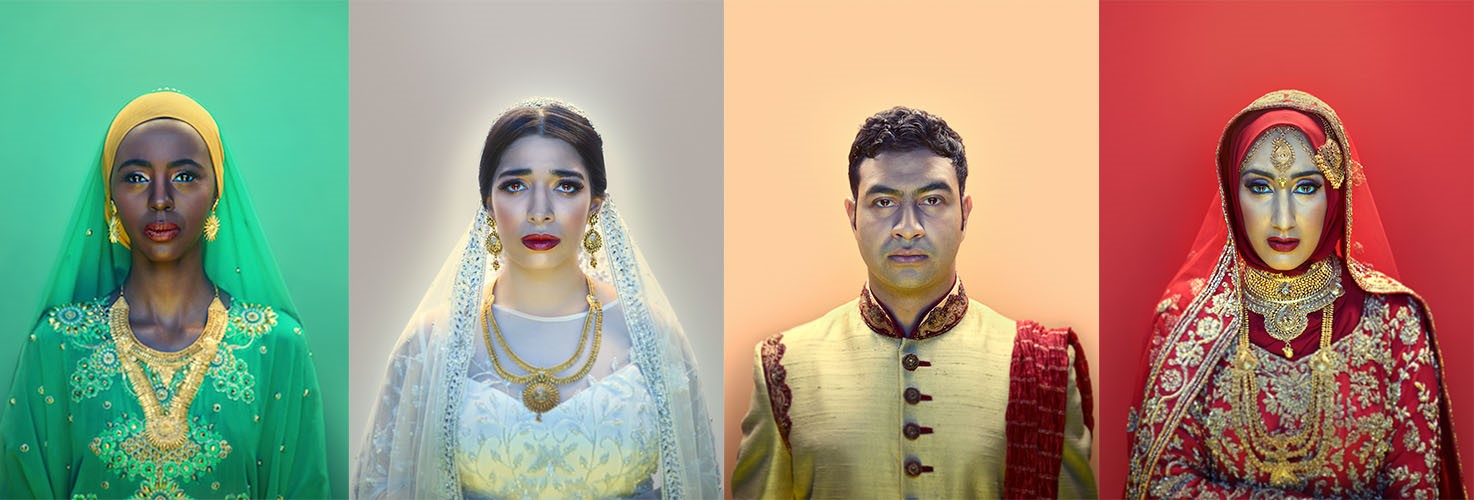
(Image - forcedmarriage.campaign.co.uk)
Newspaper Articles
“I was a victim of forced marriage” In this article a woman talks of her own experience of forced marriage. She also gives insight into some information about forced marriage including facts and figures about forced marriage in the UK. She talks about being brought up in the UK by a traditional Indian Hindu family, being brought up to be ‘a wife’, being forced into marrying a stranger and the abuse she received from her husband and his family, the fact her family had paid a ‘dowry’ to them and her eventual divorce and survival story.
(A dowry is a payment of property, land, gifts or money in exchange for a daughters hand in marriage, the bride usually has no choice in this and is seen as an asset to be traded)
"I was a victim of forced marriage" - BBC three article
“'I was forced to marry my cousin” In this news article Nyla Khan tells her story about her experience of forced marriage. At the age of 17 she was forced to marry her cousin in Pakistan, who she then moved back to Scotland with. A few months later Nyla ran away but her family eventually decided to put love above religion and bring her home. She divorced her husband, went on to get a social work degree and now lives her life as ‘an independent Muslim woman”
" I was forced to marry my cousin" BBC news article
Academic Articles
Forced Marriage, Coercive Control, and Conducive Contexts: The Experiences of Women in Scotland”
This article is about a study based on forced marriages from a survivor’s perspective where eight survivors of forced marriage were interviewed in depth about their traumatic experiences.
Sage Journals - experiences of women in Scotland
Online Training Opportunities
Raising Awareness of Honour-Based Abuse and Forced Marriage” This online course ran by EduCare would be beneficial to anyone working with victims of HBV and forced marriage, or individuals who wish to learn more about the subject. The course takes on average 2 hours to complete and costs £18.50 to partake. This course is accredited by Jasvinder Sanghera CBE who is not only a survivor of forced marriage and honour abuse, but also the founder of award-winning charity Karma Nirvana. This course will help individuals who undergo it understand what Honour Abuse and forced marriage are, identify who is most at risk, make them aware of signs to look out for, understand the victims by giving case studies, how to support victims and where to refer individuals to for further support. https://www.educare.co.uk/courses/raising-awareness-of-honour-based-abuse-and-forced-marriage
“Forced marriage awareness training” This online course is CPD certified and will take around 30 minutes to complete. The course makes its users aware of forced marriage and honour based violence, what it is, who is at risk, signs to look out for, includes case studies, guidance on how to help victims, gives an insight to laws and legislations etc.
Forced marriage Awareness training
“Honour-based violence and forced marriage: protecting those at risk and supporting survivors (CPD course)” This in person course ran by woman’s aid will cost individuals either £175 or £150 to partake in (depending on if they’re members of woman’s aid or not). The course is aimed at anyone who may work with or support potential victims of honour based violence or forced marriage, it aims to raise awareness of what these issues are and make it easier to detect the signs for those who may be supporting potential victims. Those who partake in the course should be able to recognise the signs of abuse, identify who is most at risk, feel confident to support victims of these issues and know where to go for further support for victims.
Protecting those at risk and supporting survivors ( CPD course)
Presentation Links
Honour Based Violence and Forced Marriage
Women's Aid - Honour based violence and Forced Marriage presentation
Videos and Podcasts
“Forced marriage: The Conversation” In this podcast by the BBC (27 mins) Jasvinder Sanghera, the founder of Karma Nirvana and Fraidy Reiss the founder of Unchained at Last talk about their experiences of forced marriage, their stories, how they got out and what they now do to support other victims.
Forced Marriage - The conversation Podcast
“Right to choose: the consequences of forced marriage”
In this video, a boy tells of how his sister started changing as a teenager, going out with a boy the family didn’t approve of and becoming ‘too Westernised’. The family decided to have her married to her cousin as he was a respectable man, his sister didn’t want to get married, she agreed to go away to their home country to please her dad but had no plans of getting married. She never returned home and was forced to marry and live with her cousin in a country that was not her home.
Additional reading
Forced Marriage Unit Statistics 2018
The Home Office - Forced Marriage Unit Statistics
Female Genital Mutilation
What is it?
Female Genital Mutilation (FGM) is when a female’s genitals are altered or removed for non-medical purposes. It is also referred to as female circumcision and cutting. FGM is a form of abuse and can have a long-lasting effect on women not only emotionally but physically.
There are four different types of FGM, the first being clitoridectomy, in which part or all of the clitoris is removed.
The second type is excision, when part or all of the clitoris is removed along with the inner labia (vaginal lips surrounding the vagina) and sometimes including removal of the labia majora (the larger outer vaginal lips)
The third type is infibulation which is when the vaginal opening is narrowed by cutting and repositioning the labia.
The fourth type is any other harmful procedures to the female genitals.
Who is most at risk?
Females
Female members of Somali, Ethiopian, Nigerian, Kurdish, Kenyan, Egypt, Sudan Mali and other South Asian communities
Females who have had a female relative undergo FGM
What are the signs to look out for?
A female relative has undergone FGM
A female having a long unexpected absence from school
A relative known as a cutter visiting from abroad
Having difficulty walking standing or sitting
Spending longer in the bathroom
Acting differently after an absence
Reluctance to go to the doctors or undergo medical examinations
Useful Websites
Childline offers advice, information and support.
Childline - Female circumcision, FGM and cutting
NSPCC
The NSPCC website offers a lot of information, it goes into detail about what FGM is, who is at risk of FGM, the signs to look out for that someone may be at risk of FGM or is a victim of FGM and how to handle a situation where a person may report FGM to you. The website also goes into more detail about why FGM happens, the effects it has and further places that children, professionals etc can go to if they believe they or someone else is at risk of FGM or are a victim
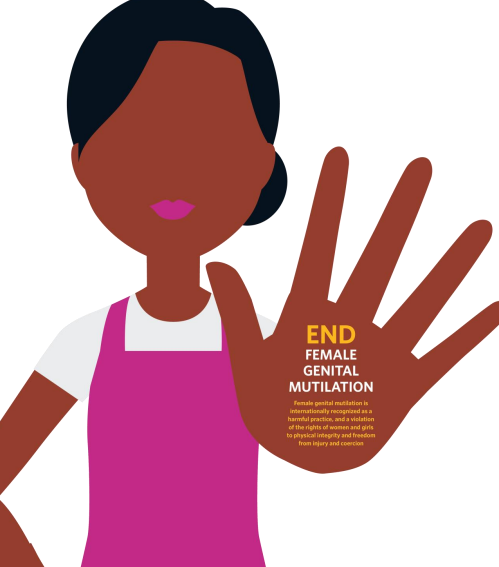
(Image -unfpa.org)
Case Studies
“I was six years old when it happened to me” In this real-life story, a girl tells of her traumatising experience with FGM. She knew she was going to be cut because some of her friends had had it done already and it was the norm in her community. It didn’t make the experience of her family holding her down and forcing her to be cut any easier. Even years later when her periods started she faced physical issues from the cutting, she received medical help to reverse the.
How to refer (Scotland)
Amina: Muslim Women’s Resource Centre
Services, campaigning and free helpline on 0808 801 0301
Saheliya is a specialist mental health and well-being support organisation for black, minority ethnic, asylum seeker, refugee and migrant women and girls (12+) in the Edinburgh and Glasgow area.
EDI- 0131 556 9302
GLA-who are over the age of 0141 552 6540
How to refer (UK)
Childline
Childline offers free advice and support to children who are victims of FGM or are afraid they may become victims of FGM
0800 1111
NSPCC
The NSPCC offer free confidential advice and support
0808 800 5000.
You can contact them via their online form here
Newspaper Articles
“'In Search': A survivor's story of female genital mutilation” This article talks about filmmaker Beryl Magoko and the documentary she has made where she returns to her hometown in Kenya and reflects on her own experience of FGM. Beryl talks to other women in her hometown about their experiences in order to shed light on the massive issue that many women in these cultures face. Beryl also investigates constructive surgery in an effort to regain her dignity and what was taken from her against her will.
Academic Articles
“What is FGM, where does it happen and why?” This online article by the BBC gives an insight to what FGM is while giving real life stories of women who have experienced FGM and the impact it has had on their life’s, health, mental health and relationships. The article then goes on to inform the reader of the four different types of FGM, clitoridectomy, excision, infibulation, and the fourth that includes all other types of genital mutilation. The article also includes reasons behind FGM such as, religion, social acceptance, preserving a women’s virginity etc, And finishes by geographically showing the prevalence of FGM around the world.
BBC World News - What is FGM, where does it happen and why?
“Female genital mutilation in the UK- where are we, where do we go next? Involving communities in setting the research agenda” This research article, the researchers discuss the issue of FGM in the UK, detailing what it is, who is most at risk etc. The author states that in the UK there is an increasing awareness of FGM as a health and safeguarding issue. Although it is more understood now and recognised as an issue that can and does affect women in the UK, there is little research on the topic. The researchers highlight this issue and attempt to combat it by holding PPI events for women healthcare professionals, teachers etc to get an input from members of the communities on what they believe are the healthcare needs and research priorities for their community.
Biomed Central - FGM in the UK
Online Training Opportunities
“Female Genital Mutilation: Resource Pack” This resource pack published by the UK Government includes information on FGM, legislation, case studies, resources for good practice for those supporting victims or potential victims of FGM and links to support helplines etc for people who may be at risk at risk or are victims of FGM.
While this legislation does not cover Scotland it is still relevant to inform good practice.
“Recognising and preventing FGM training” This free E-Learning safeguarding course would be helpful to anyone who may be working with and supporting victims and/or potential victims of FGM. The course will help them know what FGM is, be able to identify who is at risk of FGM and how to support these girls.
Enable - FGM learning - register
Forward offers three different types of training in relation to FGM. The first is community training which is where they work with communities where individuals have been affected by or may be at risk of FGM. They raise awareness, hold support groups, host workshops, give specific training to community peer educators and inform the community of support services that are available. The second being school’s training, they offer a multi-award-winning UK schools programme that delivers age appropriate sessions to primary and secondary schools and higher education institutions. They also provide safeguarding training to all staff in schools. The third is professional training, Forward provides accredited and tailored training to professionals who may need to safeguard potential victims of FGM.
Presentation Links
“Female Genital Mutilation”
The Home Office - FGM presentation
Videos and Podcasts
“Isatus story” In this video (3mins 35secs), Itsanu tells her story. She was only 16 years old when she was visiting her sister in Sierra Leone and was asked to join the Bondo Society. She was unaware that this meant having her genitals mutilated and was tricked into the process. It has given her problems her whole life, including having to be cut open again to give birth to her children. Itsanu believes “there is no benefit it only causes us pain”.
“Survivors voices: Health consequences of FGM” In this video (4min53sec), in an aim to raise awareness of the fact that FGM does happen in the UK. You can hear service users of the national FGM centre talk about their experience of FGM. They all tell their story of how old they were, how it happened, and how they felt experiencing this abuse. They go onto then speak of all the health complications they have had since undergoing FGM, such as the excruciating pain they go through during childbirth because of FGM, not being able to orgasm, their cuts ripping during labour, the fact that the cut will never heal.
Additional Reading
Multi-Agency Guidance for responding to FGM (Scottish Government 2017)
The aim of this guidance publication is to help those at risk of FGM, help practitioners identify victims of FGM and ultimately to prevent and end FGM.
Human Trafficking
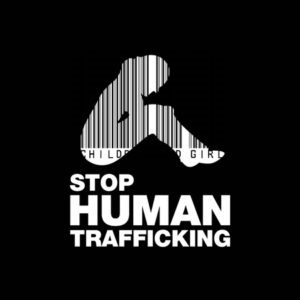
(Image - www.westerville.org)
What is it?
Human trafficking is a serious crime and a violation of human rights, yet it still happens to thousands of men, women and children annually across the world. Human trafficking is the movement of people using force, fraud, coercion or deception, with the aim of exploiting them. People are usually trafficked for commercial and or sexual labour. It is a form of modern slavery. Human trafficking does not always involve the movement of people internationally as it also occurs across the UK.
Who is most at risk?
Runaway and homeless children
Children and youths in foster care
People with disabilities
Those fleeing violence or natural disasters
Individuals who have experienced abuse or exploitation previously in their life’s
Refugees
Asylum seekers
What are the signs to look for?
Signs of physical injuries
Lack of official documentation
Living at place of employment
Appearing malnourished
Scripted responses
Lack of personal possessions
Warning signs of Human Trafficking
Useful Websites
STOP THE TRAFFICK
This website will inform readers of what human trafficking is, the scale of the issue, different types of exploitation and how to respond if you witness or have concerns of human trafficking.
Stop the Traffik - What is Human Trafficking
Hope for Justice
The Hope for Justice websites provides in-depth advice on knowing the signs of the different types of trafficking.
Hope for Justice identify five different types of human trafficking, these are sexual exploitation, criminal activity, child abuse, forced labour and domestic servitude.
Hope for Justice - Spot the signs
Case Studies
“Trafficked: Three survivors of human trafficking share their stories.”
Three women who are survivors of human trafficking share their stories in an aim to point towards the urgency for action on human trafficking.
Trafficked - three survivors of human trafficking share their story
How to refer (Scotland)
Community safety Glasgow- The
TARA Service.
This service provides support, advice and referral to other agencies for women over the age of 18 who have been trafficked for commercial sexual exploitation.
0141 276 7724 (24 hours a day)
Migrant Help-
Migrant help anti trafficking helpline offer free and confidential help and advice to victims of human trafficking 18 and are not involved in commercial sexual exploitation.
0141 884 7900 (Monday-Friday, 9am-5pm) or 0141 212 8553 (out of hours)
How to refer (UK)
Modern Slavery Helpline-
The human slavery helpline can be contacted for help support and advice and to report any suspicions pf human trafficking.
08000 121 700
The British Red Cross-
The British Red Cross provide accommodation, help and advice to victims of human trafficking.
antitrafficking@redcross.org.uk
0344 871 11 11
Newspaper Articles
“Sex trafficking in the UK: one woman's horrific story of kidnap, rape, beatings and prostitution” In this article published in the Guardian, the story of ‘Erika’ a girl who was human trafficked from Romania and coerced into the sex trade by a pimp who beat her at just 17 years old is told. ‘Erika’ was brought to the UK from human traffickers, raped and beat daily and though the gang who had trafficked her were going to murder her, she feared for her life. The sex crimes unit arrested her and many other women and she did not understand, not knowing the law of the country made this a traumatic experience for her. The police finally discovered the truth that ‘Erika’ was a victim after her arrest and she now helps other women at the safeguard house. ‘Erika’s story give an insight into just how big of an issue human trafficking is and shows that it is prevalent in the UK.
The Guardian - Sex trafficking in the UK
Academic Articles
“Human Trafficking: Young people’s experiences of front-line services In England”
This article reports findings from a study of 20 young people who were trafficked into and around England and the experience they had with front -line services.
Child Trafficking - Young people's experiences of front line services in England
Online Training Opportunities
Human Trafficking and Modern Slavery in this online course, participants will learn the signs of exploitation and trafficking, the best methods for talking to and supporting victims and how to best accommodate the effects of their trauma. This course is CPD certified and takes around 1-2 hours to complete. It would be beneficial to individuals working with those most at risk of human trafficking and modern slavery and individuals who may encounter victims of these crimes. This course costs £36 to partake.
“Every child protected against trafficking” ECPAT UK provides a wide range of training on human trafficking topics; these courses are held over zoom due to covid-19. Many of their courses are CPD certified and discounts are offered for multiple team members. They deliver many different training modules one of which is “An Overview of Child Trafficking, Exploitation and Modern Slavery” This course will give participants an opportunity to gain knowledge and understanding of child trafficking, exploitation and modern slavery and also provide an opportunity to increase their skills when supporting victims. Another course they offer is “Child Criminal Exploitation and Trafficking” this course focuses specifically on child criminal exploitation. It will give participants the skills and knowledge to work with and support victims of this exploitation, as well as knowledge of the youth justice system and safeguarding. Another course they offer is “Safe accommodation and missing child victims of trafficking” which focuses specifically on children who are victims of child trafficking and exploitation and children separated from their families while seeking asylum. This course will give participants an understanding of the issues so they can identify why children go missing and can best support and accommodate these victims. These courses as well as many more can be accessed here: EPCAT Training - Every Child Protected against trafficking
Hope for Justice
Hope for Justice provide training to all professions that may encounter victims of human trafficking.
The training they provides offers the participant an understanding of what human trafficking is, the sign’s someone may be a victim of human trafficking, how to report it, victim’s rights and legal framework for supporting victims.
Presentation Links
Human Trafficking: who are the victims?
Videos and Podcasts
“Faces of Human Trafficking Preview Video” This video (3min 12 sec) is a preview of a 9 part video series that provides information on human trafficking, gives a deeper insight into different types of trafficking, the types of people who are more at risk etc. The series also provides survivor stories and investigates the rights of victims. The preview video for the series shows survivors telling their stories and talks about how a multi-disciplinary approach is necessary to helping victims of human trafficking and tackling the problem. Although this series is based in the US the issues are still relevant worldwide and a lot of the information is transferable.
“Free the unseen” This video (3min 27sec) is about knowing the signs. Victims of human trafficking are often reluctant to come forward, because of this is it essential for people to know the signs and report any concerns they have to the modern slavery helpline on 0800 0121 700. The aim of this video is to raise awareness of the fact that human trafficking is an issue in the UK and gives insights into some of the signs to look out for.
Additional Reading
Migration data portal
Data on Human Trafficking
